Our modern education system is highly complex. The more we understand about human behaviour, cognitive psychology, developmental psychology and the ways in which we learn, the more we understand that there is no single learning approach that works for everyone.
The objectives of education are broad but generally encompass: imparting knowledge, nurturing a growth mindset, improving confidence, enhancing personal growth and bettering wider society. If teachers and educators are to meet these objectives – and, ultimately, give students the best possible chances of success across their lifespan – acknowledging the important role that psychology plays in learning environments is key.
Why is educational psychology useful to teachers?
Educational psychology – the branch of psychology concerning the study of how humans learn – provides valuable insights that can help teachers create educational experiences, measure learning outcomes, and increase student engagement and motivation.
Moreover, studies have indicated that the role of educational psychology in learning environments can help teachers:
- identify how well individuals fare in different learning situations
- analyse and evaluate methods of teaching
- address learning barriers
- understand developmental characteristics and tailor teaching accordingly
- optimise education programmes and curriculum development
- find the most effective methods for teaching individuals with specific learning challenges, such as dyslexia, dyscalculia or attention deficit hyperactivity disorder (ADHD)
- explore how factors including genetics, environment, socio-economic status and culture impact learning.
Because we all access education differently, teaching and learning concepts must adapt to, and account for, individual differences. In already packed timetables and curriculums, discovering how to craft the most effective lessons and learning moments is a valuable skill for teachers. As such, educational psychology should be one of the core facets of teacher education.
Principles of educational psychology in the classroom
A 2015 report published by the American Psychological Association (APA) indicated the top 20 most important psychological principles to foster effective learning. These principles of educational psychology are divided into five areas: cognition and learning; motivation; social and emotional dimensions; context and learning; and assessment.
Here is an example of a principle from each of the categories, and how the knowledge can be applied to enhance the teaching-learning process:
- Cognition and learning – students’ beliefs or perceptions about intelligence and ability affect their cognitive functioning and learning.
This principle focuses on the concept of ‘growth mindsets’ versus ‘fixed mindsets’. The former relates to the belief that intelligence, talent and other characteristics are malleable and that success is related to effort; the latter that all of these factors are innate and unchangeable. As these mindsets are integral to student outcomes and performance, it’s important teachers cultivate growth mindsets in their learners. This can be achieved in multiple ways, such as: normalising struggle as part of the process of learning, viewing mistakes as learning opportunities and celebrating corrections, incorporating problem-solving activities and challenges to help students overcome obstacles and develop resilience, and avoiding praising intelligence outright and instead focus on the learning as the achievement.
- Motivation – students tend to enjoy learning and perform better when they are more intrinsically than extrinsically motivated to achieve.
Classroom activities and practices can be adapted to support students’ need for autonomy. While this is a place for extrinsic motivation in education, taking time to identify other sources of motivation will achieve better results in the long-term. What motivates the individuals in a class? What do they respond to? What are their passions? Working out how they make their own meaning from learning activities will guide what approaches are most suitable.
- Social and emotional dimensions – emotional wellbeing influences educational performance, learning and development.
Increasing self-esteem, self-motivation and wellbeing in students will support them to develop as confident, capable lifelong learners. Teachers can help improve student wellbeing by giving them a sense of autonomy through self-directed learning and choice, listening to them, focusing on their achievements, setting manageable goals, and fostering an inclusive environment where they feel cared for.
- Context and learning – effective classroom management is based on setting and communicating high expectations, consistently nurturing positive relationships, and providing a high level of student support.
Creating a culture of strong academic achievement and positive behaviour helps to develop a climate that enhances learning. Restorative practices – which are grounded in social psychology and used to build social bonds between both individual students and wider learning communities – helps students experience a sense of safety and belonging. In turn, this improves behaviour, reduces bullying and creates space for students to engage in effective learning. In practice, this often looks like effective communication, creating shared goals, asking reflective questions, outlining boundaries and recognising and expressing feelings.
- Assessment – formative and summative assessments are both important and useful, but they require different approaches and interpretations.
While both are important and useful, formative and summative assessments require different approaches. Students of different ages are already assessed in different ways, but are there ways to assess learning that are broader and play to different strengths? For example, weekly quizzes, home-based projects, group work, in-class discussions, games, presentations or essays.
What are the different types of intelligence?
Dr Howard Gardner’s theory of multiple intelligences was developed to demonstrate the diversity of human intelligence. The theory has widespread application across both educational and business settings, and can support the work of educational psychologists, teachers, business leaders and others with an interest in learning more about a student’s abilities and motivations.
Every person has a different type of intelligence. Gardner argued that traditional psychometric measures of intelligence are too restrictive and, instead, suggested that there are eight main types of intelligence. Here, each intelligence type is paired with activities and subject matters to which it may be particularly suited:
- Linguistic-verbal – learning languages, memorising details, storytelling and other reading, writing and speaking activities
- Logical-mathematical – problem-solving, conducting scientific experiments, completing mathematical problems, quantifications and complex computations
- Musical – thinking in sounds, patterns and rhythms, singing and making music
- Bodily-kinesthetic – manipulation of objects, sporting activities, building and making and other hands-on activities
- Spatial-visual – recognising patterns, solving puzzles, interpreting graphs, and abstract thinking
- Interpersonal – using different forms of communication and working collaboratively on activities or problems
- Intrapersonal – metacognitive abilities in understanding the self support activities linked to thoughts, feelings and perspectives
- Naturalist – using the environment to solve problems, identification and classification, nature-based activities, growing, planting and gardening, foraging, hiking and camping.
In terms of classroom teaching or any other type of teaching, educators may prefer to plan learning activities that draw on the diverse strengths and intelligences of all of their students.
Use psychological insights to enhance and extend classroom practice
Would greater knowledge of educational psychology help you in your role?
Develop as an exceptional educator – with in-depth knowledge of how different individuals can be supported to access learning – with North Wales Management School’s online MSc Educational Psychology programme.
Our flexible educational psychology course is designed for those who are ready to take the next step in their educational career, from head teachers and school managers to teachers and SENCOs. You’ll gain the skills to apply psychological evidence and learning theories to classroom practice, and support learners to achieve the best outcomes. Module topics include child and adolescent development, learning methodologies, forensic psychology, additional learning needs and giftedness, behaviour disorders, and much more.




